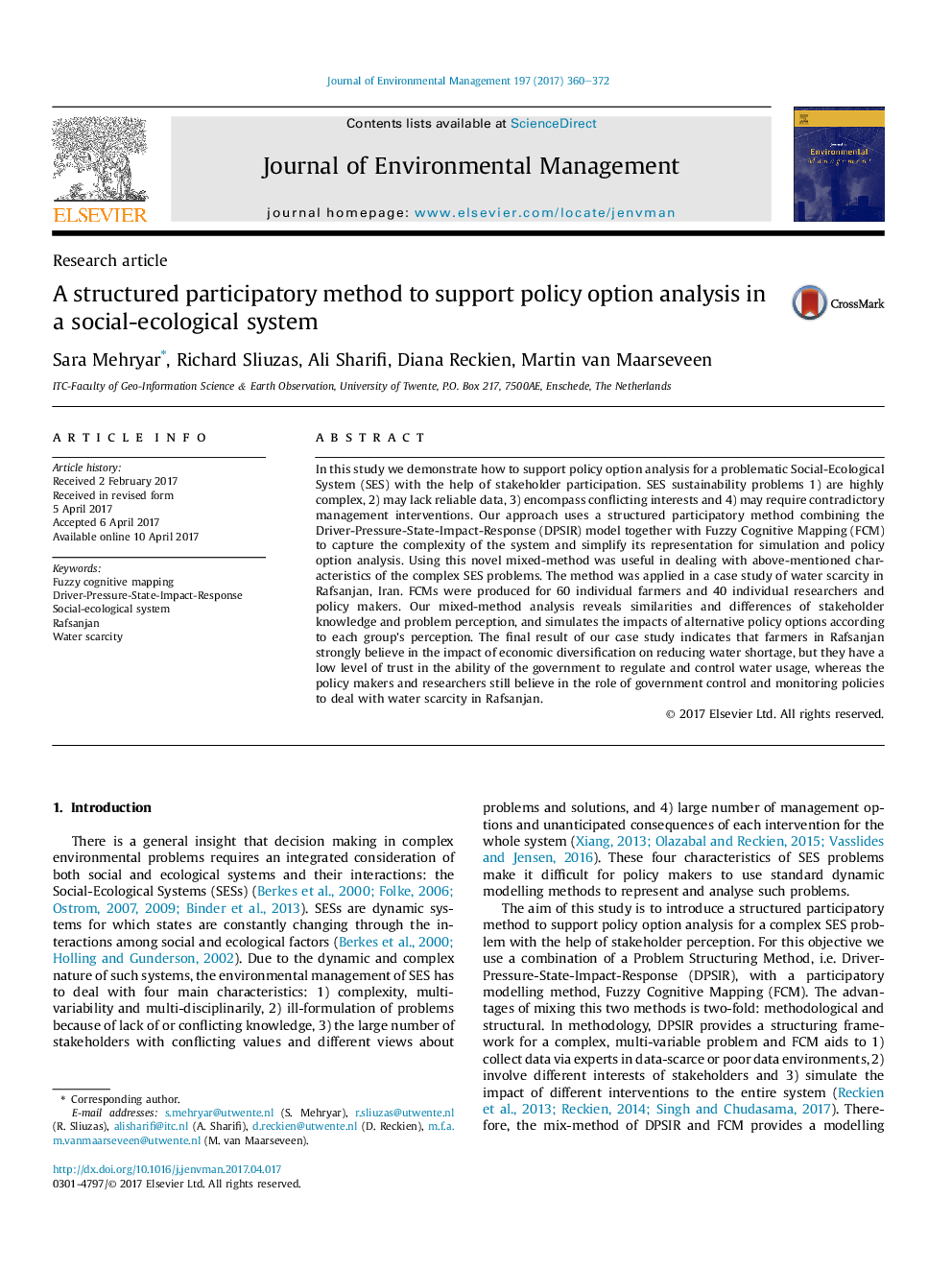| Article ID | Journal | Published Year | Pages | File Type |
|---|---|---|---|---|
| 5116962 | Journal of Environmental Management | 2017 | 13 Pages |
â¢A mixed-method of DPSIR-FCM is useful to capture the complexity of a system and represent it for policy option analysis.â¢The mixed-method approach of DPSIR-FCM provides insight into the main features of a SES problem.â¢Integration of multi-stakeholders' perceptions in environmental decision-making is the main approach of this study.â¢The case of Rafsanjan, Iran is relevant for other semi-arid regions confronted with water scarcity.â¢The impacts of different policy options on stakeholders' perception models were simulated.
In this study we demonstrate how to support policy option analysis for a problematic Social-Ecological System (SES) with the help of stakeholder participation. SES sustainability problems 1) are highly complex, 2) may lack reliable data, 3) encompass conflicting interests and 4) may require contradictory management interventions. Our approach uses a structured participatory method combining the Driver-Pressure-State-Impact-Response (DPSIR) model together with Fuzzy Cognitive Mapping (FCM) to capture the complexity of the system and simplify its representation for simulation and policy option analysis. Using this novel mixed-method was useful in dealing with above-mentioned characteristics of the complex SES problems. The method was applied in a case study of water scarcity in Rafsanjan, Iran. FCMs were produced for 60 individual farmers and 40 individual researchers and policy makers. Our mixed-method analysis reveals similarities and differences of stakeholder knowledge and problem perception, and simulates the impacts of alternative policy options according to each group's perception. The final result of our case study indicates that farmers in Rafsanjan strongly believe in the impact of economic diversification on reducing water shortage, but they have a low level of trust in the ability of the government to regulate and control water usage, whereas the policy makers and researchers still believe in the role of government control and monitoring policies to deal with water scarcity in Rafsanjan.
